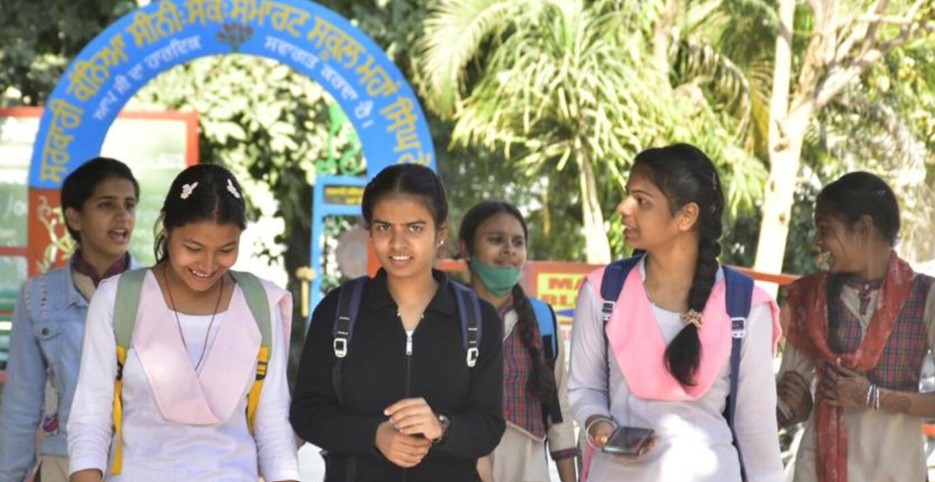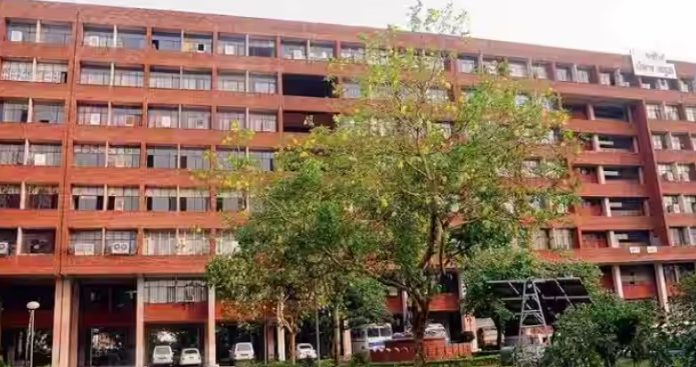The Punjab School Education Board (PSEB) recently made a significant decision to cancel the Class X music singing examination, a move that has sparked widespread discussion among students, parents, and educators alike. The board’s decision comes as part of a broader set of reforms aimed at streamlining the examination process and addressing logistical concerns. However, the cancellation has also raised concerns among students and teachers who believe that music as a subject is being undervalued in the academic curriculum.
The announcement of the cancellation came as a surprise to many, particularly students who had been preparing for months for the practical and theoretical aspects of the exam. Music, being a subject that requires both technical knowledge and performance skills, has been an integral part of the curriculum for students with an interest in the arts. The cancellation has left many of these students feeling disappointed and uncertain about how this decision will impact their overall academic performance and their interest in pursuing music further.
One of the key reasons cited by the Punjab School Education Board for canceling the music singing exam was the logistical challenges associated with conducting practical assessments at such a large scale. Unlike subjects that rely purely on written examinations, music requires live performance assessments, which means that students need to be evaluated individually. Given the number of students enrolled in the subject, conducting these assessments presented a significant challenge for the board. Many schools across Punjab lack the necessary infrastructure, such as soundproof rooms, quality musical instruments, and trained evaluators, to assess students effectively. The PSEB found it increasingly difficult to ensure standardized and fair evaluation across schools.
Another factor contributing to the decision was the reported shortage of qualified examiners to evaluate music students. The board has faced ongoing challenges in recruiting and training examiners who can assess students’ vocal performance objectively. Unlike subjects such as mathematics or science, where answers are either right or wrong, music evaluation involves subjective judgment, making it difficult to maintain uniformity in grading. The variation in examiners’ perspectives has led to inconsistencies in scores, causing concerns about fairness and accuracy in assessment.

Additionally, some officials from the education board believe that practical exams in music singing create an unnecessary burden on both students and schools. With increasing emphasis on core subjects such as mathematics, science, and languages, there has been a shift in focus away from extracurricular and arts-based subjects. The cancellation of the Class X music singing exam is seen by some as an attempt to prioritize core academic areas while reducing the number of practical assessments that require additional resources and effort.
However, not everyone supports this decision. Many educators and music teachers argue that removing the exam undermines the importance of arts education in schools. They point out that music is not just a recreational activity but a discipline that requires dedication, practice, and skill. Removing the exam from the curriculum sends a message that music is not a serious subject, which could discourage students from taking an interest in it. Teachers also emphasize that music education has been proven to enhance cognitive abilities, improve concentration, and boost students’ overall academic performance.
Students who had been preparing for the exam are also expressing frustration and disappointment. Many of them had been practicing diligently, working on vocal techniques and preparing songs to perform in front of evaluators. For these students, the cancellation feels like a setback, as they will not have the opportunity to showcase their skills and receive recognition for their hard work. Some students worry that this move might also affect their future opportunities, especially those who had planned to pursue music as a subject in higher education or even as a career.
Parents, too, have mixed reactions to the board’s decision. While some appreciate the effort to simplify the examination process and reduce stress on students, others feel that the move diminishes the importance of creative subjects. Some parents argue that removing music exams could lead to a decline in student participation in artistic activities, ultimately reducing the diversity of talents nurtured in schools. They believe that education should be holistic, with equal emphasis on arts, sports, and academics.
The broader implications of this decision also raise concerns about the future of arts education in Punjab’s schools. If music singing exams are being canceled due to logistical difficulties, could this lead to further reductions in music and arts programs? Some fear that over time, schools might stop offering music as an optional subject altogether, given that subjects without examinations often receive less attention from both students and school administrators. This could lead to a gradual decline in the number of students opting for music, ultimately impacting the cultural landscape of the region.
Music teachers across Punjab are now urging the PSEB to reconsider the decision and find alternative ways to assess students. Some suggestions include conducting assessments in smaller groups, using recorded performances for evaluation, or implementing an internal grading system managed by schools rather than the board. Others believe that rather than canceling the exam, the board should work on strengthening music education by providing better resources, hiring more qualified instructors, and standardizing the evaluation process.
The decision to cancel the Class X music singing exam also highlights the ongoing debate about the role of practical subjects in the education system. Many argue that practical and skill-based subjects should be given equal weightage alongside traditional academic disciplines. In an era where creative industries are booming, skills in music, dance, theater, and other arts-related fields are increasingly valuable. By reducing emphasis on these subjects, students may miss out on opportunities to explore their talents and build careers in non-traditional fields.
Education experts believe that a more balanced approach is needed to address these concerns. Rather than eliminating practical exams altogether, they suggest implementing reforms that make assessments more manageable. For instance, digital tools could be used to facilitate remote evaluations, where students record their performances and submit them for grading. This would reduce the logistical burden on schools while still allowing students to be evaluated on their skills. Additionally, partnerships with local music institutions and professionals could help bring in expert evaluators who can ensure fair and standardized assessments.
In response to the growing backlash, the Punjab School Education Board has stated that it will review its decision and consider feedback from stakeholders. Officials have assured students and teachers that they remain committed to promoting arts education and will explore alternative assessment methods in the future. The board has also indicated that discussions are underway to find ways to support schools in providing better resources for music education.
As Punjab continues to evolve its education policies, the debate surrounding the cancellation of the Class X music singing exam serves as a reminder of the need for a well-rounded approach to learning. While academic subjects remain crucial, it is equally important to nurture creativity and artistic expression among students. The decision taken by the board may have been based on practical concerns, but its impact on students, teachers, and the overall education system should not be overlooked.
Ultimately, the resolution of this issue will depend on how the Punjab School Education Board responds to feedback and whether it takes meaningful steps to support music education. If alternative assessment methods are introduced and music continues to be encouraged in schools, students will still have the opportunity to develop their skills and pursue their passion for the arts. However, if such subjects are gradually phased out, it could have long-term consequences for the cultural and artistic development of future generations.


